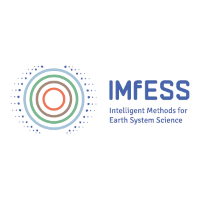Participating working groups - Geology and Mineralogy
This page lists all working groups of the Institute for Geology and Mineralogy whose research focuses fit the ideas of the key profile area "Intelligent Methods for Earth System Sciences".
The Quaternary covers the past 2.6 million years. It thus forms the youngest chronostratigraphic system in the history of the earth. The Quaternary is of particular importance (1) for paleoclimate research, as it is characterized by a particularly cold and variable climate, (2) for environmental research, since future environmental developments can be inferred from the Quaternary history and (3) for the georesources, since groundwater and important building and raw materials are stored to a large extent in quaternary sediments...Read more
Our research is concerned with the methodological development and application of cosmogenic nuclides for geoscientific questions. The laboratories (from cleanroom facilities to ISO 6 laboratories) are designed for the preparation of samples for terrestrial 10Be, 14C (in-situ), 26Al- and 36Cl analysis. Furthermore, the chemical processing of heavy ions such as 239,240,242,244Pu isotopes for subsequent measurement using Accelerator Mass Spectrometry is available in our laboratories...Read more
The Mineralogy/Crystallography group is concerned with the atomic structure, physical and thermodynamic properties of crystalline and non-crystalline matter (minerals, melts, glasses, aqueous fluids) and their interaction in the Earth system. Experimental approaches are combined with molecular-scale simulations.
The Organic Geochemistry & Radiocarbon Group is using radiocarbon analysis and organic geochemical methods to investigate carbon cycling and transport processes in terrestrial and marine environments as well as for the reconstruction of palaeoclimatic conditions.
Our special interest is the radiocarbon analysis of organic 'biomarker' compounds isolated with chromatographic methods from soils and sediments as well as 14C analysis of CO2.
...Read more
The Working Group on Micropalaeontology and Palaeoecology (MicPal) at the University of Cologne aims to provide new perspectives on past ecosystems and ocean-climate dynamics through foraminiferal research.
Foraminifera are single-celled organisms that occupy a vast range of benthic and planktic habitats in the world’s oceans
The MicPal lab is equipped with facilities for the storage and preparation of microfossil samples and state of the art stereo microscopes combined with digital imaging systems...Read more
The Geo-/ Cosmochemistry working group focuses on development and application of novel analytical techniques in the fields of isotope and trace element geochemistry. Our research focus is placed on high temperature processes related to crust-mantle evolution on Earth, the origin of the solar system and early Earth evolution. Over the past years, low temperature processes have additionally become a research topic of our group...Read more
The Petrology workgroup at the Institute of Geology and Mineralogy has a broad interest in the origin of magmatic and metamorphic rocks. Past projects, led by Prof. Dr. Reiner Kleinschrodt, have focused on rocks of the lower continental crust, with study areas in northern Italy, Sri Lanka, southern India. Current projects, led by Dr. Yannick Bussweiler, deal with various intracontinental volcanic rocks (such as kimberlites and alkali basalts) and their mantle xenoliths (fragments of the Earth’s mantle transported to the surface by deep volcanoes)....Read more
Current topics of the working group:
- Extreme CO2 greenhouse heated up the young earth: High temperatures on the young Earth with low solar radiation were probably caused by a lot of carbon dioxide in the atmosphere / With the onset of plate tectonics, it got colder as the CO2 was gradually stored on the continents..
- Even the Neanderthals suffered from climate change: changing climate conditions, dryness and drought could have been largely responsible for the extinction of the Neanderthals.
...Read more
Geobiological research explores the interplay of the biosphere and the geosphere and their co-evolution through space and time.
Geobiology aims to fundamentally understand recent biogeochemical processes in order to reconstruct ancient life and changes of environment conditions. Since the Precambrian microorganisms shape the earth by inducing mineral precipitation forming geological structures but also destroying them via biocorrosion.
...Read more
The Earthquake station in Bensberg belongs to this working group:
The most important task of the Bensberg earthquake station today is the recording and scientific evaluation of the earthquakes in the northern Rhineland, especially the Lower Rhine Bay. From a geological point of view, the subsidence area of this bay, which is relatively young, is one of the most important earthquake regions in Germany, along with the Upper Rhine Graben, the Swabian Jura and the Vogtland...Read more
